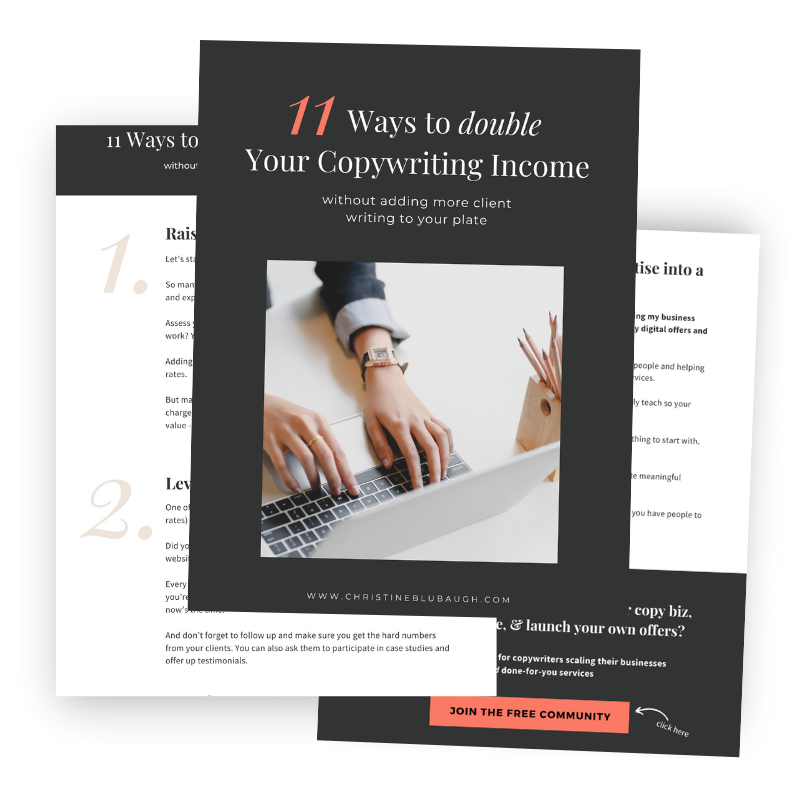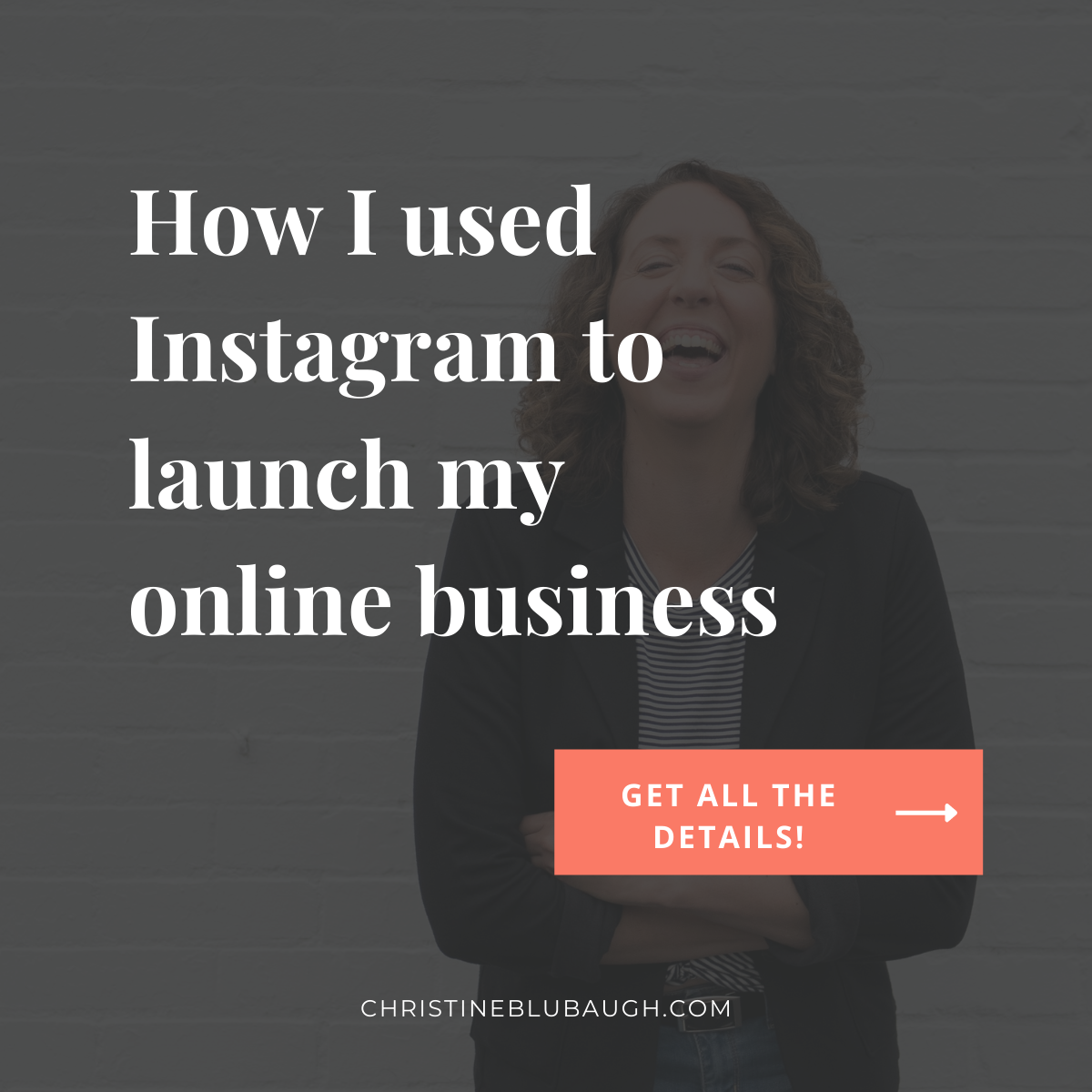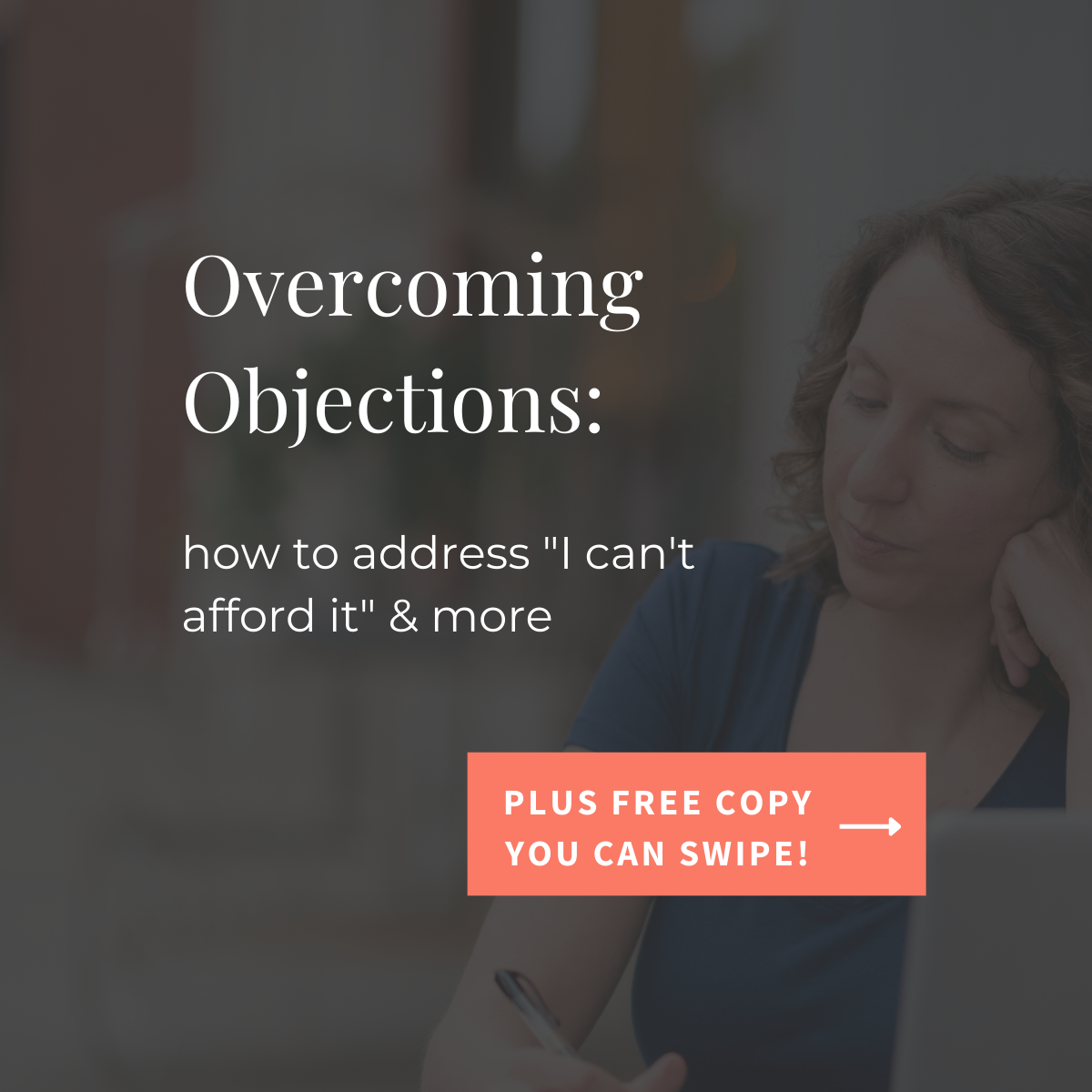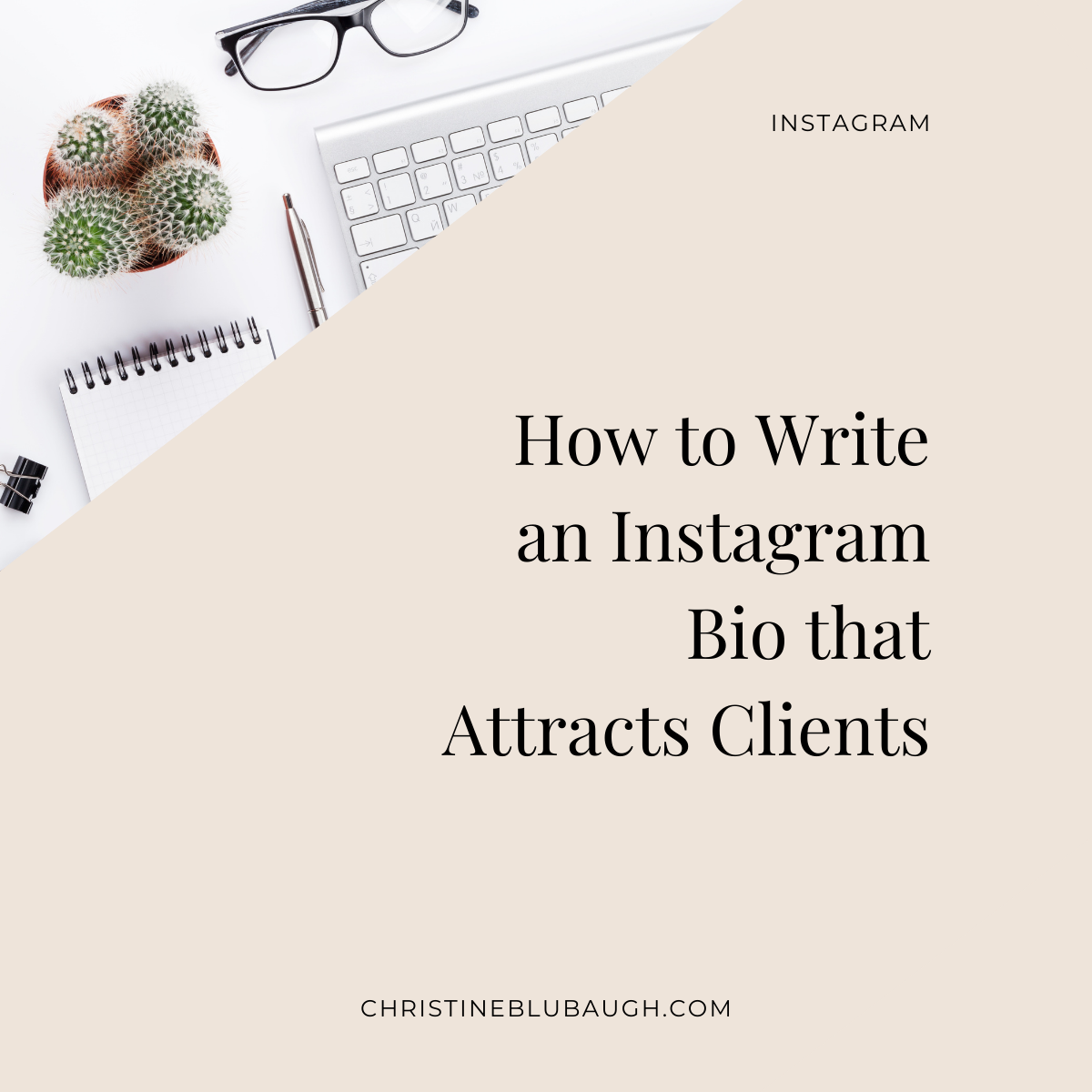
What do you really need on your copywriter website when you’re just starting out? TL ; DR = the bare minimum
In May of 2016, I decided to launch my copywriting career (and by “launch” I mean tip-toe out from behind the curtain and timidly start telling people I was now “a writer”).
I’d accidentally booked my first client a month before (that’s a story for another day), and that first client led to my second. Two clients without really trying? Obvs I was destined for greatness (I’m totally making fun of myself here).
Like most business owners in the digital age, the first thing I thought was – oh shizz, I need to update my website.
I’d been running christineblubaugh.com for a few years at that point, but prior to copywriting, I’d spent six years branding myself as a food blogger and health coach. Everything about me online screamed quinoa and kale – website, social media profiles, podcast appearances, random photos in Google Images…
I was convinced that the only way I could possibly be legit was to rep myself as a copywriter on my website.
Website = professional. Website = I know what I’m doing. Website = in no way am I winging this on a freaking prayer.
That line of thinking led to 48 hours of frantic WordPress edits.
Every blog post went to “Draft” status, every word was rewritten, and a new color scheme went into effect. It was a weekend of eye-straining madness.
But by Monday morning, I had a “new” site. One that met the “good enough” criteria I was going for. It wasn’t complete by any stretch, but I figured I could add more as I went along, or maybe even hire a designer with the fat stacks I was (hopefully maybe) going to make.
A year and a half later my website is a little more “complete”, but basically the same.
I can see what I did right in those beginning stages, along with the things I could’ve done differently.
Here’s what I learned…
What You Need on Your Copywriter Website (when you’re just starting out)
Before I get into this, I want to let you in on the biggest secret I uncovered:
Nobody even saw my damn website in the first few months I was in business.
The first several clients I worked with came through social media and word-of-mouth referring. They never asked to see my website. And they never mentioned having looked at it.
Seriously. I didn’t need a website at all to get paying clients.
This is something I hear from service-providers fairly often – that they either didn’t/don’t have a website, or they had a few pages that closely resembled a steaming pile of dooky left to rot in the rain. And their clients didn’t care. They made money anyway. Their businesses flourished.
If you’re thinking – that’s cool, and all, but I still want to have some kind of online home to send potential clients to – then here’s what I recommend.
Keep it simple.
Home Page: include a blurb about what you do, who you serve, and what kind of results people can expect by working with you. Link to your services page.
About Page: include a brief overview of your beliefs, why you do what you do, and any relevant experience/credentials. You don’t need to tell your life story.
I legit had a 4 sentence, 3rd person bio on my About Page for the first six months I was in business. Meanwhile, people were paying me hundreds of dollars to write their About Page copy.
Services Page: tell people the basics of what you offer, who it’s for, and how it will help them.
I recommend NOT including packages and pricing on your services page in the beginning. I made my packages up as I went along, based on what each individual client was asking for. It helped me see what my market wanted, and it made my sales calls easier – I catered to them.
In terms of pricing, I knew what I would charge for an individual page, an entire website, etc., but since I was creating custom packages for each client, I didn’t post the rates.
Contact Page: include either a contact form or your email address and instructions on how to get in touch with you. If people do find your website, you want to make sure it’s easy for them to inquire about your services.
Join the FREE Copywriter to CEO Community –
get trainings, tools, and resources to create more freedom and income in your business – (click here)
Should you have a blog on your copywriter website when you first start out?
It’s not necessary. Some copywriters use blogging as a marketing tool, but many six-figure copywriters don’t blog at all.
When you’re just starting, it’s more important to spend your time finding clients than to be fiddling with a blog. I say this because many people will use blogging as a means to stay “busy” rather than actually grow their businesses.
If you already know how to promote a blog and can attract readers right away, then blogging might be a good way to increase your visibility and bring in clients. Be honest with yourself, and decide if this is a smart move for you.
A website can be a helpful tool, but it’s not essential to grow a successful business. Spend your time on high-leverage actions that will lead to paying work in the beginning, and save the heavy website work for further down the road.
Keep reading about freelance copywriting:
6 Mistakes I Made in My First 6 Months of Freelance Copywriting




